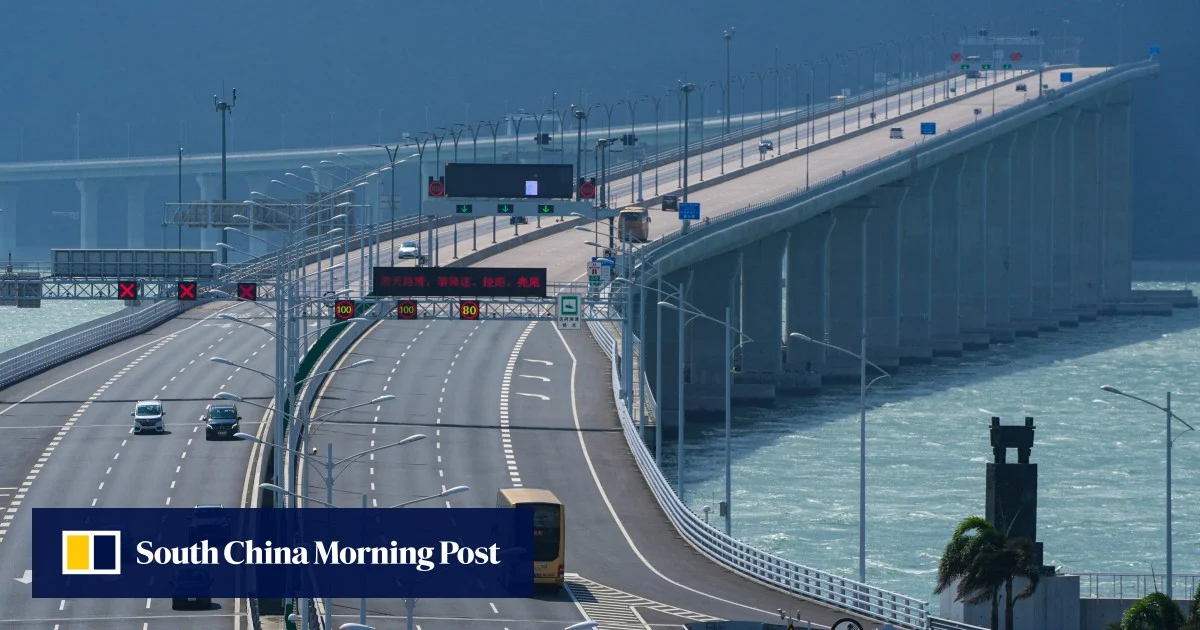Published on
October 14, 2025
Australia has added France to its list of high-risk travel destinations, which also includes Indonesia, Bahrain, Mexico, Kenya, Hong Kong, Ecuador, and Egypt. Growing political unrest, health issues, and security threats in these nations have prompted this expansion. The Australian government is warning tourists to be extremely cautious due to the threat of terrorism and civil unrest in countries like France and Hong Kong, as well as natural disasters and health hazards in countries like Indonesia and Mexico. Australians are urged to reevaluate unnecessary travel to these high-risk areas as security and health concerns continue to influence the world’s travel scene.
Australia’s recent expansion of its urgent travel advisory system has placed several high-risk destinations on its radar. France, along with countries like Indonesia, Bahrain, Mexico, Kenya, Hong Kong, Ecuador, and Egypt, now finds itself under increased scrutiny due to various security, health, and geopolitical concerns. These countries have been added to Australia’s list of high-risk travel zones, urging Australian travelers to reconsider their travel plans or take extra precautions when visiting these areas.
This move, which reflects the country’s growing concerns over global security and public health, has raised alarm among tourists and businesses reliant on international travel. As the global travel landscape continues to evolve with mounting risks, Australians planning international vacations or business trips must navigate these heightened advisories carefully.
France: Heightened Security and Ongoing Unrest
France’s inclusion in Australia’s expanded travel alerts stems from several factors contributing to its perceived risks. Known for being a major tourist hub, France has recently faced a series of security threats ranging from terrorist activities to civil unrest. With protests and disruptions occurring across the country, particularly in large cities such as Paris and Lyon, the overall stability of the nation has been compromised. France’s popular tourist spots, including landmarks like the Eiffel Tower and Notre-Dame Cathedral, have become vulnerable to safety risks. As a result, the Australian government urges travelers to be extra cautious and stay informed about local developments during their visits to France.
Indonesia: Natural Disasters and Political Instability
Indonesia, with its archipelago of over 17,000 islands, faces recurring natural disasters like earthquakes, tsunamis, and volcanic eruptions that pose significant risks to travelers. While tourism remains a significant part of Indonesia’s economy, the unpredictable nature of these disasters has prompted Australia to include Indonesia in the high-risk category. Additionally, political tensions in parts of the country, particularly around issues like religious freedoms and local governance, have raised security concerns for travelers. With Bali, one of Australia’s most popular destinations, also facing some security risks, Australians are urged to remain vigilant and heed travel advisories closely.
Bahrain: Geopolitical Tensions and Regional Uncertainty
Bahrain finds itself on the expanded high-risk list due to the ongoing geopolitical tensions in the Middle East. As a small island nation with significant political and economic ties to both regional powers and international partners, Bahrain is vulnerable to disruptions from neighboring countries. The increasing volatility in the Persian Gulf and threats of regional conflict, coupled with concerns over human rights and freedom of expression, have made Bahrain a more uncertain destination for travelers. Australians are encouraged to reconsider trips to Bahrain or prepare for possible disruptions.
Mexico: Health and Safety Concerns
Mexico has long been a top travel destination for Australians, but it now faces heightened risks that have led to its addition to the travel advisory list. Health risks continue to be a significant concern, particularly regarding diseases like Zika and dengue fever, which are prevalent in certain areas. Additionally, ongoing issues related to drug-related violence, criminal activity, and safety in rural or remote regions of the country make it increasingly difficult for tourists to navigate safely. Popular destinations like Cancún and Mexico City are still seen as high-risk locations, with Australia advising its citizens to avoid non-essential travel and stay aware of any local incidents.
Kenya: Terrorism and Security Threats
Kenya has been added to Australia’s travel alert list due to the persistent threat of terrorism and violence in various regions. Terrorist attacks, such as those targeting the capital, Nairobi, and tourist hotspots like Mombasa, have made it a difficult destination for travelers seeking safety. The ongoing threat from Al-Shabaab, a terrorist group operating in East Africa, continues to affect Kenya’s reputation as a safe travel destination. The Australian government urges travelers to exercise extreme caution when visiting Kenya, particularly in areas near the Somali border and other politically unstable zones.
Hong Kong: Political Unrest and Civil Disruptions
Hong Kong, once considered a beacon of stability in Asia, now faces significant challenges stemming from political unrest and civil disturbances. Over the past few years, large-scale protests against the Hong Kong government, fueled by broader concerns over autonomy and freedom of speech, have led to ongoing disruptions. While the political situation is slowly evolving, the social unrest in certain districts remains a risk factor for travelers. As Hong Kong continues to deal with clashes between pro-democracy activists and the government, Australia has issued a warning to travelers to avoid demonstrations and large gatherings, particularly in central areas of the city.
Ecuador: Political Instability and Natural Disasters
Ecuador has also found its way onto Australia’s high-risk travel list due to a combination of political instability and natural disasters. The country has faced ongoing political protests and civil unrest, particularly concerning issues related to economic reforms, corruption, and political governance. With major highways frequently blocked by demonstrators, it has become more difficult for travelers to move safely through the country. Additionally, Ecuador’s vulnerability to earthquakes and volcanic eruptions presents a significant risk, especially in the Andes region. While Galápagos Islands remains a major draw for tourists, safety concerns are rising, and Australians are urged to reconsider non-essential travel.
Egypt: Terrorism and Political Uncertainty
Egypt’s inclusion in the high-risk travel list comes amid continuing concerns over terrorist activities, particularly targeting tourists and expatriates in major cities like Cairo and Alexandria. While the country is home to some of the world’s most famous historical landmarks, such as the Pyramids of Giza and the Sphinx, the security situation has deteriorated in recent years. Terrorist attacks targeting tourist buses and military personnel have raised alarms, and there is heightened political uncertainty with ongoing issues regarding freedom of expression and government stability. Australian travelers are advised to exercise extreme caution and follow security advisories closely when planning trips to Egypt.
Australia has expanded its travel alerts, adding France, Indonesia, Bahrain, Mexico, Kenya, Hong Kong, Ecuador, and Egypt due to rising security threats, civil unrest, and health risks in these regions.
As Australia expands its travel alerts, it underscores the growing importance of security and health considerations in international travel. With France, Indonesia, Bahrain, and other nations now included in the high-risk category, the onus is on travelers to be proactive, informed, and cautious when venturing into these regions. While the travel landscape remains fluid, with both challenges and opportunities ahead, safety should always remain a priority for anyone planning a journey abroad.
This shift in travel advisories reflects a new era of cautious and informed travel, where even the most popular destinations must be approached with heightened awareness and careful planning. For Australians, staying aware of these travel updates and making informed decisions is more important than ever.



